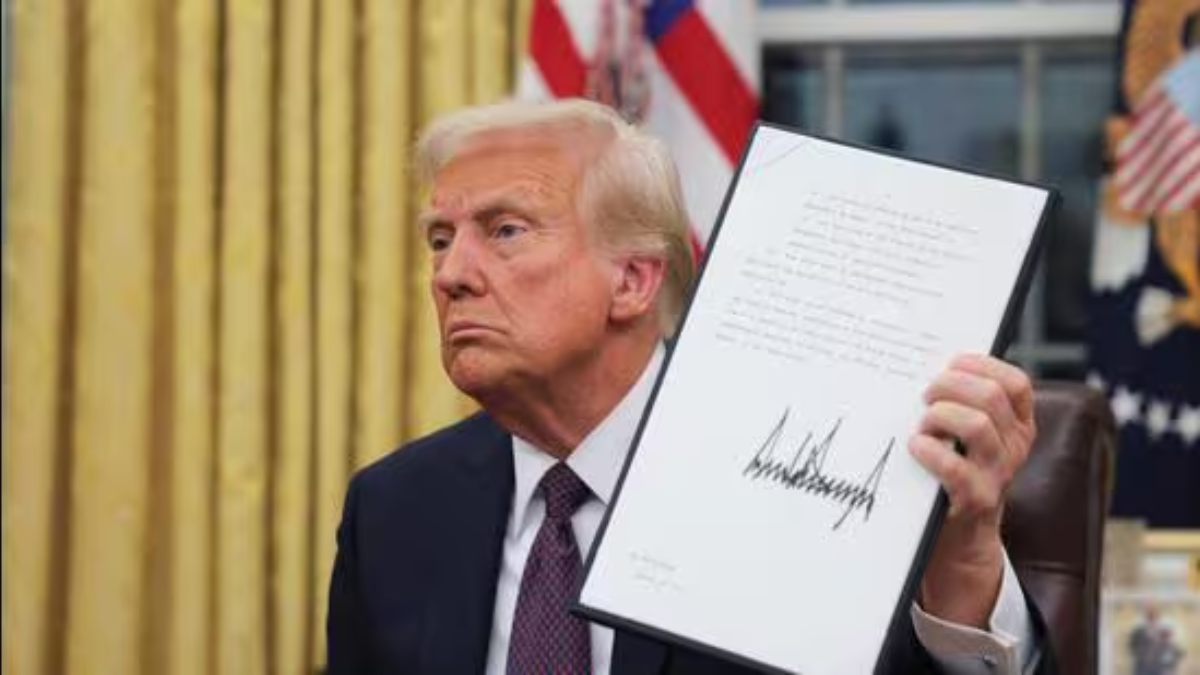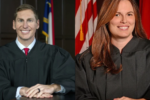In a bold and critical move, the Attorney General of Washington State, Bob Ferguson, has issued a strong response to former President Donald Trump’s Executive Order aimed at altering birthright citizenship laws. The Executive Order, signed by Trump during his final months in office, sought to reinterpret the 14th Amendment of the U.S. Constitution in a way that would restrict birthright citizenship for children born to non-citizen parents on U.S. soil. Ferguson’s remarks have sparked significant legal debates across the nation about the constitutionality of the move and its potential ramifications.
Trump’s Executive Order on Birthright Citizenship
Trump’s executive order, signed in 2020, was designed to challenge the long-standing practice of granting automatic citizenship to children born in the United States, regardless of their parents’ immigration status. The 14th Amendment to the Constitution has traditionally been interpreted to provide birthright citizenship to anyone born on U.S. soil, but Trump’s order proposed an alternative reading, which would limit citizenship to children born to parents who are legal U.S. citizens or permanent residents.
The former president’s move was part of his broader stance on immigration, aiming to reduce illegal immigration and discourage people from coming to the U.S. to give birth to children who would automatically acquire citizenship. While the executive order itself was never fully enacted due to legal challenges, it raised important questions about the interpretation of the 14th Amendment and the future of birthright citizenship in America.
Washington State Attorney General’s Criticism
Bob Ferguson, who has gained national recognition for his vocal opposition to some of Trump’s policies, quickly responded to the executive order upon its release. In a statement, Ferguson emphasized the importance of upholding the U.S. Constitution, noting that the 14th Amendment is clear in its language and intent. He argued that the Trump administration’s attempt to undermine this provision would violate foundational legal principles and could lead to significant disruptions in U.S. immigration policy.
“President Trump’s executive order on birthright citizenship is unconstitutional,” Ferguson said. “The 14th Amendment is a cornerstone of American democracy, and any attempt to undermine it would not only be unlawful but would also go against the core values of equality and justice that this country was built upon.”
Ferguson’s response highlights his commitment to defending constitutional rights and his willingness to challenge federal policies he believes overstep legal boundaries. His office has been a consistent voice in defending the rights of immigrants and marginalized communities, particularly during the Trump administration.
Legal Challenges to the Executive Order
Ferguson’s criticism is not without merit, as numerous legal experts and advocacy groups have raised concerns about the executive order’s constitutionality. In the wake of its signing, various lawsuits were filed in an attempt to block the measure. These lawsuits argued that the executive order conflicted with the plain language of the 14th Amendment, which grants citizenship to all persons born or naturalized in the United States.
Legal scholars agree that changing the interpretation of birthright citizenship would require a constitutional amendment rather than an executive order. The 14th Amendment has been the foundation for citizenship law in the U.S. for over a century, and its protection of birthright citizenship has been reaffirmed by courts over time.
The Trump administration’s efforts to end or modify birthright citizenship have faced substantial opposition in courts, and the issue remains unresolved. Some legal experts argue that a new president would need to take executive action to reverse the order, while others advocate for a legislative solution to clarify the issue once and for all.
The Future of Birthright Citizenship
The Washington State Attorney General’s opposition to Trump’s executive order on birthright citizenship raises broader questions about the future of immigration reform and the legal landscape surrounding birthright citizenship. For now, the issue remains a hot-button topic for political and legal discourse, with advocates on both sides of the debate continuing to push for reform or preservation of the current system.
As the legal challenges continue to unfold, it is clear that this issue will have lasting implications for American immigration policy. For more detailed coverage on this topic, visit American Civil Liberties Union (ACLU). The future of birthright citizenship in America may ultimately depend on future Supreme Court rulings and legislative actions.
Disclaimer – Our team has carefully fact-checked this article to make sure it’s accurate and free from any misinformation. We’re dedicated to keeping our content honest and reliable for our readers.








